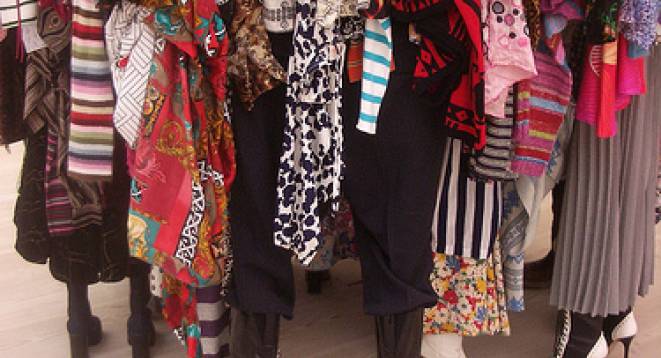Curbing the human cost of cheap clothes

Following the Rana Plaza factory collapse, a recently signed accord has been set in motion, with the goal of ensuring sustainable improvements to working conditions in the Bangladesh garment industry.
70 global brands have signed the Accord on Fire and Building Safety in Bangladesh, a programme of reforms based on independent inspections, worker-led health,
safety committees, and union access to factories.
The announced set of actions follows the tragedy of Rana Plaza collapse in April – an 8-storey factory producing clothes for many global brands, which collapsed due to vibrations from four colossal generators stored on illegally-built upper floors.
More than 1,000 workers died, and more than 2,500 were injured, with many left permanently disabled. Clothes and delivery packages from global retailers and notable high street brands were also found in the rubble.
The day before the collapse the building was evacuated as cracks started to appear in its walls, but the next morning supervisors went to the homes of workers, telling them to return to work, and in some cases threatening to dock the month’s wages if they did not.
The incident, although shocking in scale, is not an anomaly in Bangladesh. The Tazreen factory fire in November claimed the lives of 117 people, with a further 200 injured, while a fire in Dhaka just 2 months ago caused 8 deaths.
The cracks in the building were “a symbol of our failure as a nation…” wrote Bangladeshi Nobel Prize winner, Muhammad Yunus. “If we don’t face up to the cracks in our state systems, we as a nation will get lost in the debris of the collapse” he continued.
A turning point
The newly signed accord holds retail brands to several obligations that will expose and improve the state of clothes production outsourced to developing countries. The agreement, which covers more than 1000 garment factories, was coordinated by IndustriALL Global Union and UNI Global Union in partnership with leading NGOs, Clean Clothes Campaign, and Workers Rights Consortium.
The brands, which have signed the Accord are to provide a list detailing the factories in which their clothes are made. They will cover the administrative costs of inspections carried out in the next 9 months, to identify any serious hazards on the sites. They will also make funds available to pay for repairs and workers’ salaries, while the factories are closed.
A key element of the accord is its commitment to transparency about where their clothes are coming from – in the immediate aftermath of the disaster there was confusion among companies about who had clothes made in Rana Plaza.
All action of the Accord will be publically reported, in a bid to bring an end to the hidden issue of modern-day slavery. It also commits signatories to keeping production in Bangladesh for at least two years.
But, the optimism of the agreement’s implementation was tinged with the concern that it would discourage business. The Bangladeshi garment sector equals 80% of the country’s GDP and employs 3.5 million people. 4/5ths of its $20billion production is sold in the West.
Missing signatures
Many important global brands have joined the Accord, among them H&M, Tesco, Marks & Spencer, Primark, Aldi, Sainsbury’s, Benetton, and Mothercare.
However, just 3 US companies have joined, with American retail giants GAP and Walmart amongst those who have refused. Together with a number of other companies, they will come together this week to announce their rival plan, the Alliance for Bangladesh Worker Safety.
The independent corporate initiative has faced some criticism for circumventing the strict liability and legally binding obligations, which the Accord places on its members. It is a move which UNI Global condemned as “a sorry public relations exercise as they run for cover”.
For those who have joined the Accord, it is estimated that there will be an incremental increase in the price of clothes, of 2 cents per t-shirt. The General Secretary of UNI Global, Philip Jennings, asked, “How high does the body count have to go for them to do the right thing?”
Moving on with little US commitment, there is still much progress to be made. The Accord still only covers around 1000 of around 5000 garment factories in Bangladesh.
But, the unprecedented cooperation between parties, from the level of global brand to the factory floor, offers a new ray of hope to some of Bangladesh’s poorest and most exploited workers.
This is a moment of genuine opportunity for long-term, sustainable change. “Now the real work starts… these are exciting moments. The world is watching,” said Jennings.


